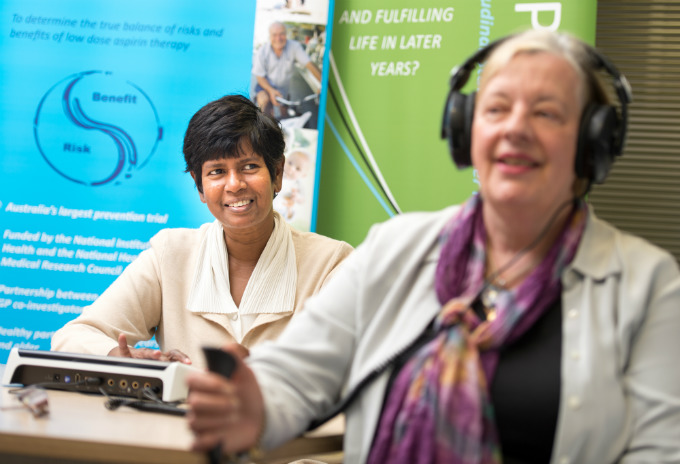New ASPREE hearing sub-study
Two-thirds of older adults over the age of 70 years experience hearing loss associated with ageing. There is no known single cause and no known cure for this type of hearing loss, which can have a profound effect on a person’s independence and quality of life.
The ASPREE-Hearing (Aspirin in HEAring Retinal vessels, Inflammatory markers, Neurocognition in older age Groups) sub-study will investigate whether aspirin prevents age-related hearing loss by reducing inflammation in the inner ear or affecting blood flow.
ASPREE-Hearing will also study the effect of aspirin on the relationship between hearing loss and changes in thinking and memory.
If aspirin proves to be beneficial, it may offer a new way to reduce age-related hearing loss in future generations.
ASPREE-Hearing participants undertake hearing tests, 2 short questionnaires about their hearing, retinal photographs (specialised photography of the back of the eye), and thinking and memory exercises (mostly undertaken as part of the main ASPREE trial).
All tests are free of charge and significant changes in hearing will be referred back to your GP for follow-up.

ASPREE-Hearing will be conducted in metropolitan and in regional areas of south eastern Australia.
Results will be collated in 2018 to determine whether daily low dose aspirin helps prevent or reduce age-related hearing loss.
To find out more about ASPREE Hearing and other ASPREE sub-studies click here.




